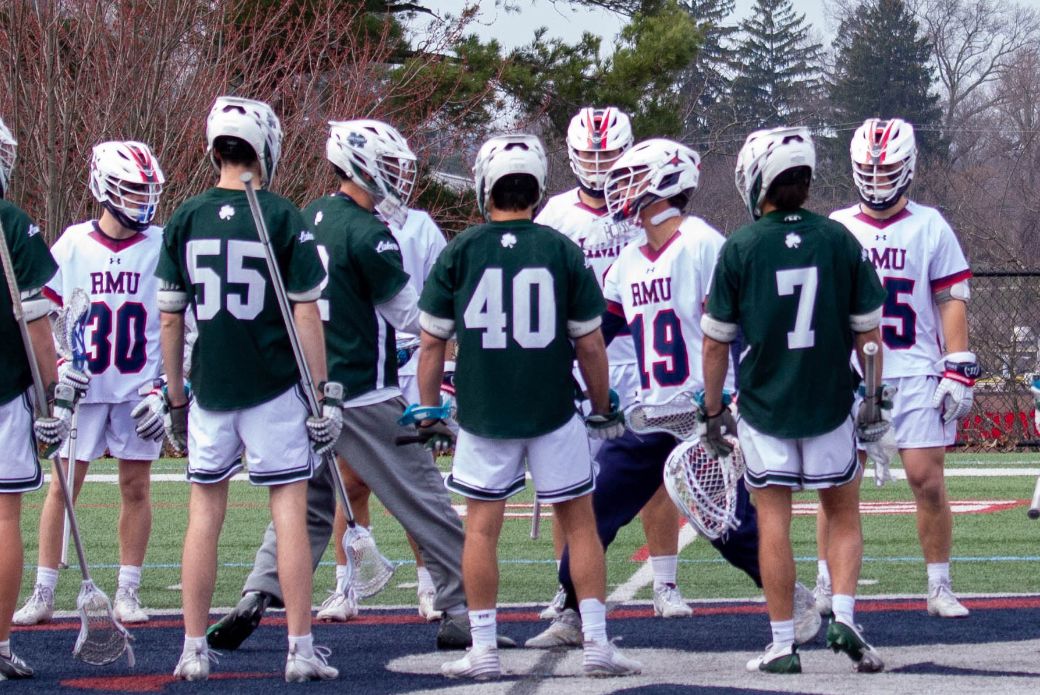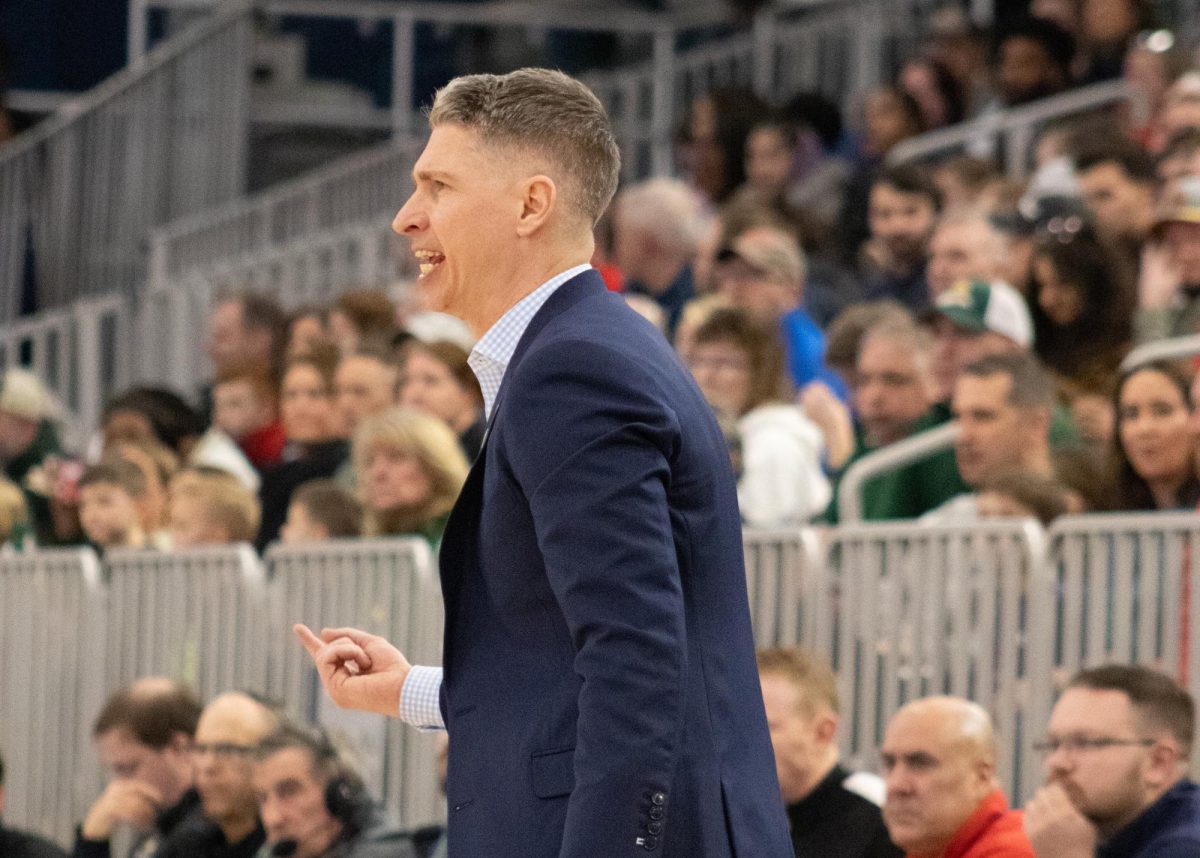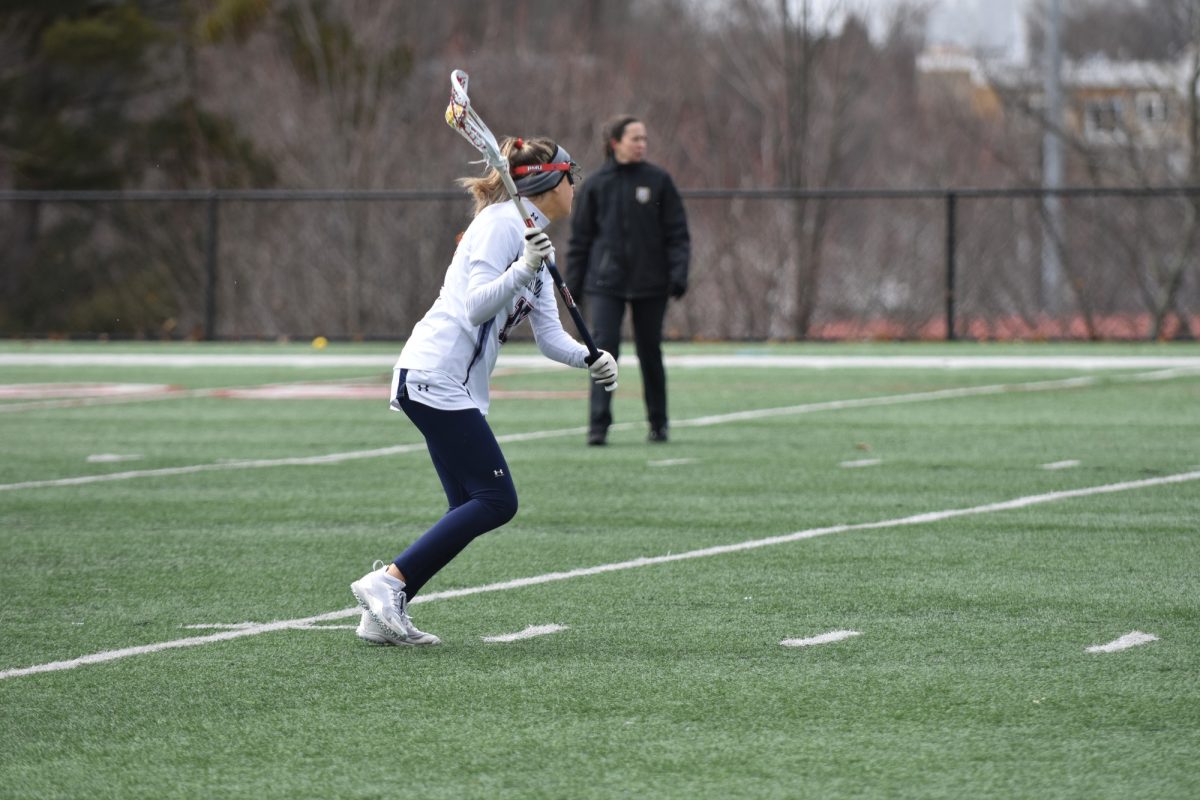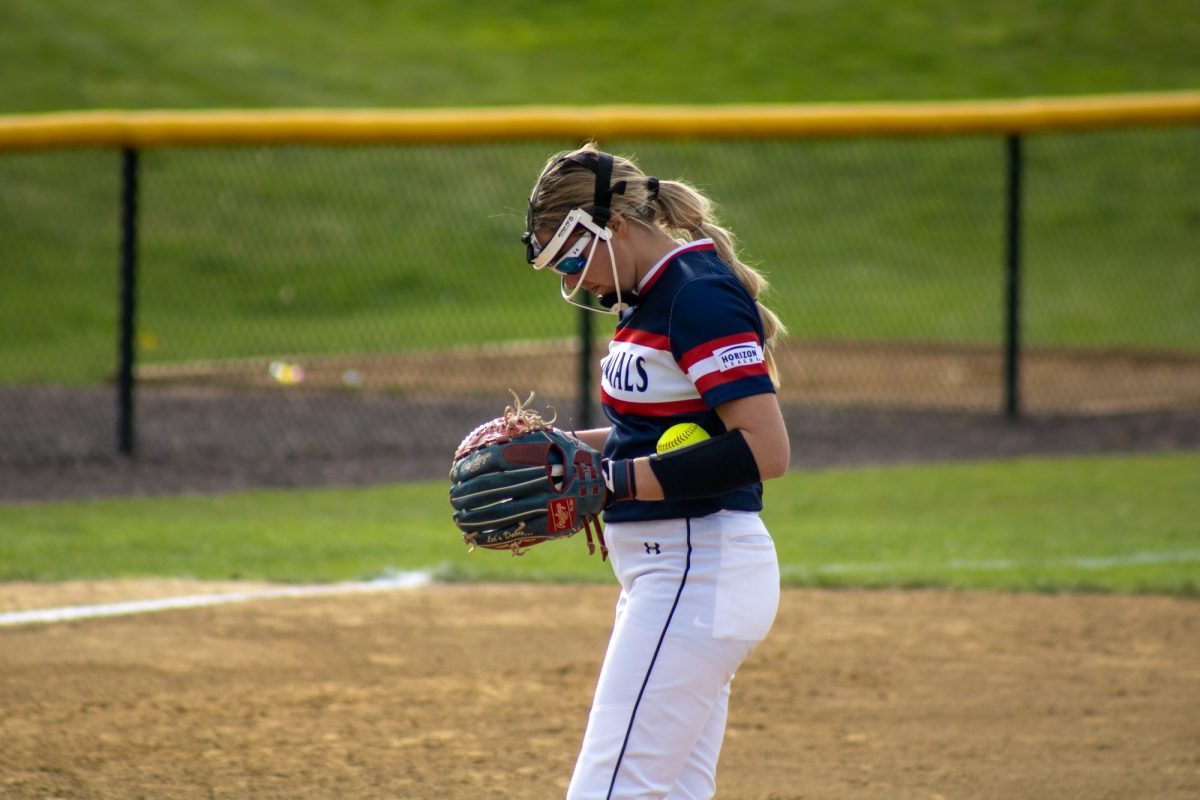In sports, a new season means new teammates and new things to adjust to, but this year, the Robert Morris University NCAA men’s lacrosse team must also adjust to multiple rule changes made by the NCAA.
One of the most significant changes will be the 30 second shot-clock. According to the 2013 NCAA men’s lacrosse rulebook, here is how the shot-clock will be used:
- At the end of the 20-second timer, a 10-second hand count is administered by the official closest to the ball. This official has responsibility for the count until a shot is taken or the time expires.
Senior attack, Jake Hayes believes that this new rule will actually benefit the Colonials.
“We’ve always had a fast placed type system anyways and we base a lot of our game off of transitions,” said Hayes. “So I think as long as we keep practicing and working on the quick restarts, it will just go into our systems which will actually benefit us in the end.”
Another significant change will be faceoff procedures. The new rule states that:
- “After two pre-whistle violations in one half by a team, the third and subsequent violations result in a 30-second technical penalty. This applies to both pre- and post-whistle violations that directly relate to the faceoff. On the third and subsequent violations, the in-home is the player that must serve the penalty. Additionally, the requirement of the faceoff player to leave the field has been eliminated. Violations by the wing players before the faceoff will count toward the three per half. Only the faceoff players may be penalized for a post-whistle faceoff violation.”
Head coach Andrew McMinn does not see this new rule being an issue for his squad.
“The new faceoff rule is that if you have three violations within a half then it will result in a penalty, previously it was just that it was the other teams’ ball and the faceoff guy had to run off the field,” McMinn said. “With the new rules, there’s going to be more uneven situations with man-up and man-down, and that could certainly present some different scenarios not only for us but who we are up against.”
Something that will be noticeably absent from the game is the use of horns. According to the new rules, “substitution may take place without the necessity of waiting for suspension of play by an official.” Players may enter the field of play from the substitution area under the following conditions:
- The player must be properly equipped.
- He may not enter the substitution area until his substitution is imminent.
- The player leaving the field of play must exit via the substitution area.
- The substitute must wait until such player is off the field of play, and the substitute may not delay his entry onto the field.
- The substitute must always yield his position in the substitution area to any player exiting the field.
- Substitution may take place while play is suspended.
“Without horns, you wont be able to get the specific personnel that you want on the field if the ball goes out on the sideline,” said Hayes on the elimination of horns. “Now it’s a race to get to the sideline because you can pick up the ball and create transition or get back in the hole.”
“It’s going to create some more quick whistles, that will open up opportunities for transition and that certainly suits our style of play,” said McMinn. “I think that’s what’s going to have the largest impact for us in particular.”
One final significant change to the rules will be the fact that there will no longer be a grace period for goaltenders to return to their crease before play is restarted.
“With the goalies specifically, as far as chasing out the shots for possessions is not something we’re going to do as actively with the rule changes,” said McMinn. “You can get put in those situations where you’re compromised because your goalie is not able to get back to the cage, so we’re not going to be nearly as aggressive with those types of situations.”
“I think now you wont see goalies chasing the ball as frequently as they used to,” said Hayes. “They’ll probably be more conservative in the cage.”
According to McMinn, most changes have been made to quicken the pace of the game.
“For us it suits our style of play. We play extremely aggressive, and we’re looking to constantly push the pace of the game, so these new rule changes just accommodate that even more,” said McMinn. “We’re excited because it works into our style of play, as far as these changes go for teams throughout the country, I think we’re definitely a team that will benefit from it.”







